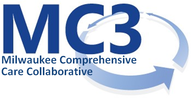DEFINITION
Service Integration is the creation of linkages among services, resources, people, or processes involved in every person’s recovery. There should be awareness, coordination, and collaboration among providers, organizations, services, and the personal network involved in the individual’s recovery that exist on a continuum of integration. A team-based approach is ideal, with a single coordinated care plan with input from the person and other individuals in her or his recovery network.
Examples of Indicators:
- Identifiable formal and informal supports in a team setting providing input to the single coordinated care plan.
- Documentation of “warm transfer” or transition to another helping agency.
- Documentation of outcome of referrals with other individuals providing helping services in the person’s recovery.
- Documentation of ongoing communication with other individuals providing helping services in the person’s recovery.
- Service integration is written into the organization’s policies and procedures.
- Individuals’ satisfaction with the agency’s efforts to integrate services is assessed through surveys, focus groups, in-depth interviews, and consumer advisory panels
Assessments:
- Dual Diagnosis Capability in Addiction Treatment and Dual Diagnosis Capability in Mental Health Treatment (DDCAT and DDCMHT): Large assessment including a set of pertinent questions in the first section (I. Program Structure, item IC) regarding the degree of Coordination and Collaboration with Mental Health (or Addiction) Services, based on SAMHSA’s definitions of the stages of the Integration Continuum.
- Philadelphia Behavioral Health Services Transformation Practice Guidelines for Recovery and Resiliency Oriented Treatment: Not an assessment per se but a set of guidelines with seven goals in each of four domains (Assertive Outreach and Initial Engagement; Screening, Assessment, Service Planning, and Delivery; Continuing Support and Early Re-Intervention; and Community Connection and Mobilization); one of the goals is to Provide Integrated Services and includes practical suggestions and potential strategies to help realize these goals within each domain.
- Organizational Readiness to Change Assessment (ORCA): 77-item tool used to identify and monitor organizational strengths and weaknesses to support implementation of evidence-based practices.
- Team Strategies/Tools to Enhance Performance and Patient Safety – Organizational Readiness Tool: Relatively simple 12-item assessment, easily administered, designed to assess an organization’s readiness to implement a quality improvement process to improve teamwork and safety in an organization; should be completed by the leadership of the organization; can be taken in an online version that includes scoring and feedback.
